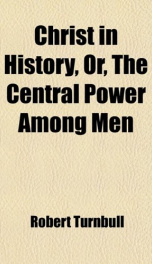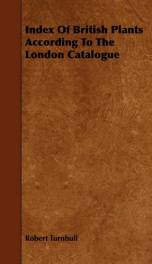christ in history or the central power among men

Purchase of this book includes free trial access to www.million-books.com where you can read more than a million books for free. This is an OCR edition with typos. Excerpt from book: CHAPTER III. THE CENTRAL PBINCIPLE, OR CHBIST IN ANCIENT REUGION. One of the most interesting and well-developed religions of the ancient world, the remains of which yet linger in many parts of Asia, especially in Persia, is that of the Zend-Avesta, (Fire-kindler, or Living Word,) the sacred book of the Parsees, or ancient fire-worshippers. Considerable dispute exists as to the primitive form of this religion, and some apparently well- grounded doubts have been cast upon the genuineness of the Zend-Avesta. Many learned men, however, allow it, in the main, to be the work or compilation of their great religious teacher, Zer- dnsht, or Zoroaster, who is supposed to have flourished before the time of Cyrus. Still the work- is fragmentary, consisting mainly of occasional institutes, prayers, and other liturgical forms. Those most competent to form an opinion say that it has the appearance of a work consisting of some original materials, with successive additions and emendations. It was brought origir nally from India byAnquetil Du Perron, by whom it was translated and published in 1771, and has ever since been the subject of frequent discussion among Oriental scholars. Upon the whole, we are compelled, from the present state of the evidence, to conclude that its genuineness, or at least its extreme antiquity, is a matter of great doubt. Zerdusht himself begins to appear almost as a mythic character.! Still the probability is, that there was such a personage, and that he gave form and pressure to the old Magian faith. Dean Prideaux and some other learned men think that the compiler of the Zend-Avesta derived much of his knowledge from the Hebrew Scriptures, perhaps from Daniel, and the Jewish exiles long resident among the Magi at the court of the Chaldean monarch. The suppositio...
Info about the book
Author:
Series:
Unknown
ISBN:
1616144564
Rating:
5/5 (10)Your rating:
0/5
Languge:
English
Users who have this book
Users who want this book
What readers are saying
What do you think? Write your own comment on this book!
write a commentif you like christ in history or the central power among men try:
Other books by this author
Do you want to exchange books? It’s EASY!
Get registered and find other users who want to give their favourite books to good hands!



